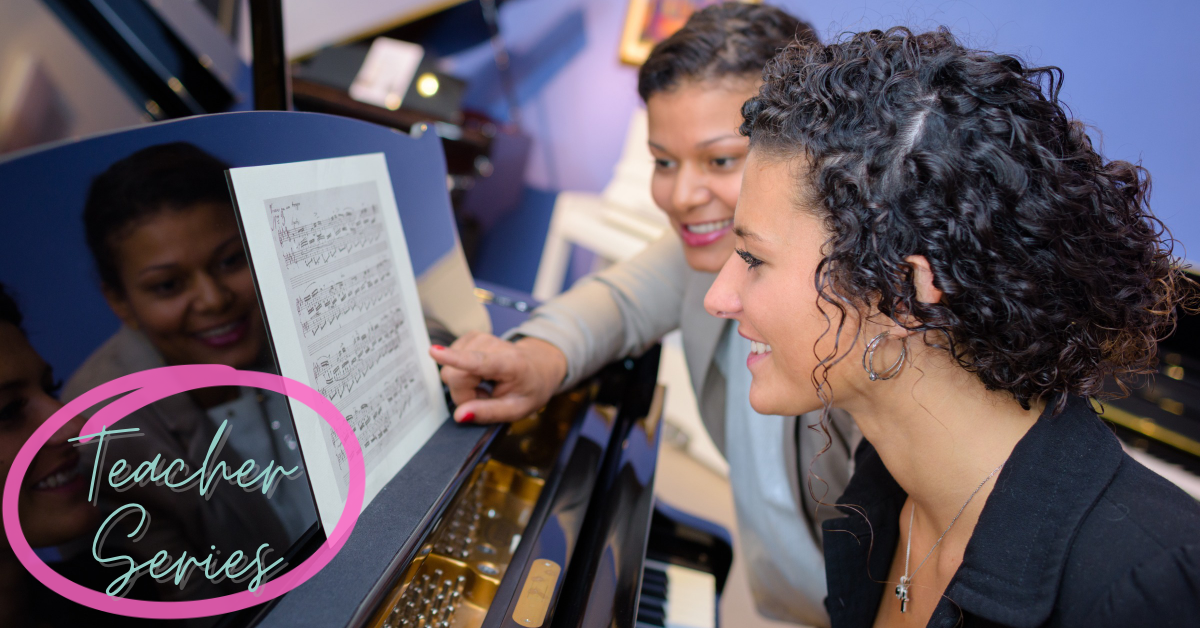Learning piano isn’t just a childhood pursuit. As teachers, we often encounter adults seeking to learn to play for the first time, or perhaps learn again after many decades away from the instrument!
Teaching piano to adults is a unique experience compared to teaching children. Adults have distinct motivations, expectations, and goals, which require different teaching approaches than those used for children. Getting to understand those motivations, expectations and goals is essential to help our adult students have a successful experience at the piano. Adults tend to have a greater sense of internal motivation, can focus for greater periods of time, and have more life experience and knowledge about music, which helps them learn the piano faster. However, they may also have a busy schedule, stress, and other commitments that make it difficult to find time to practice.
Here are some of the things we prioritise with our adult students when they begin lessons:
1. Have a clear discussion about their overall goals and music they enjoy. Then communicate your plan and how that aligns with them achieving their goals.
2. Choose music that aligns with their interests. If they don’t like it, or see the point to it, they are unlikely to progress (very similarly to our younger students really….)
3. Set specific weekly goals and challenges: Adults like to have clear goals and objectives to work towards. Discuss what’s achievable and help them track their progress.
4. Also have a chat about life getting in the way sometimes, how this is expected, and part of the acquisition of new skills. The important part is that we continue, little by little, in the direction of our goals. Sometimes this will be faster, and at other times slower. Adults can be particularly hard on themselves if they don’t see continuous rapid progress.
5. Use real-life examples: Adult learners may have a greater appreciation for the history and context behind music. Using real-life examples can help them connect with the music on a deeper level.
6. Use a practical approach to music theory: Music theory can be challenging to grasp, but adults are more likely to understand its concepts than children. Present music theory in a practical and applied manner that is relevant to the pieces they are playing.
7. Adult learners may benefit from having a community of fellow piano players to connect with. This can involve setting up duets, separate performance opportunities or encouraging them to attend local concerts or recitals.
8. Emphasise the importance of regular practice. Practice is essential for improving playing ability, and it is important to emphasise this to adult learners. Encouraging them to set aside time regularly (15-20 minutes is okay when you’re starting to build routine) for practice. It is one of the biggest predictors of progress and (for an adult learner) whether they continue in the long term.
9. Adult learners may have different expectations and learning speeds than children. It is important to be patient and understanding, and to celebrate their progress no matter how small. Building confidence in their ability to learn and get over the hurdle of thinking “I can’t do it straight away, so I’m no good at it” is very important.
10. Focus on enjoyment. Many adult learners take up piano lessons for the sheer enjoyment of it. It is important to find ways for the challenging work (thinking/learning new things and gaining coordination slower than they expect) to be engaging and enjoyable. Incorporating quick-win pieces will make a big difference to their confidence and belief that they can in fact do this! Enjoyment will also come from playing pieces they know and aspire to play, or things they have a personal connection to. Using a range of resources that suit the individual can be helpful.
Hopefully these ideas make your experience of teaching adults more enjoyable, both for you and them. Teaching piano to adult beginners can be a lot of fun. Yes, it requires a modified approach to that which we might use to teach children. But with open communication about goals and realistic expectations we can build a foundation for a fruitful and positive learning experience. If you add in a good dose of personalised repertoire, practical music theory, and a regular practice routine, adult beginners can be very successful learners, and wonderful students we look forward to teaching each week!
